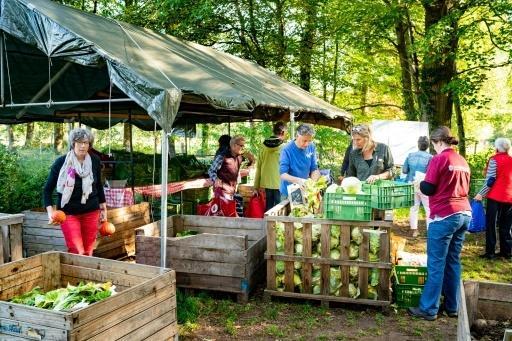BOXTEL, Netherlands – Chickens roam the orchards, cows chew the cud and pigs roll in the mud on a warm day on a Dutch farm — but the pastoral scene is not as traditional as it seems.
The farm is owned and run by a cooperative of hundreds of local consumers and aims to change habits in a low-lying country engaged in an existential fight against climate change.
Some 200 families decide what the farm will produce — and they will eventually eat — and employ a farmer to tend to the animals for meat and eggs and grow a dozen kinds of fruits and vegetables.
“The main aim of the members is to eat natural products, produced near to where they live, in a more sustainable way,” said Douwe Korting, co-leader of the Boxtel cooperative, in the southern Netherlands.
“People are really starting to see that a change towards a different way of eating is essential,” he added.
It costs 2,000 euros ($2,200) to join the collective farm, which is 10 minutes by bicycle from the town, and then a weekly fee of around 10 euros per person.
In return, members receive the food they want and stress the importance of knowing what they eat is local and seasonal.














